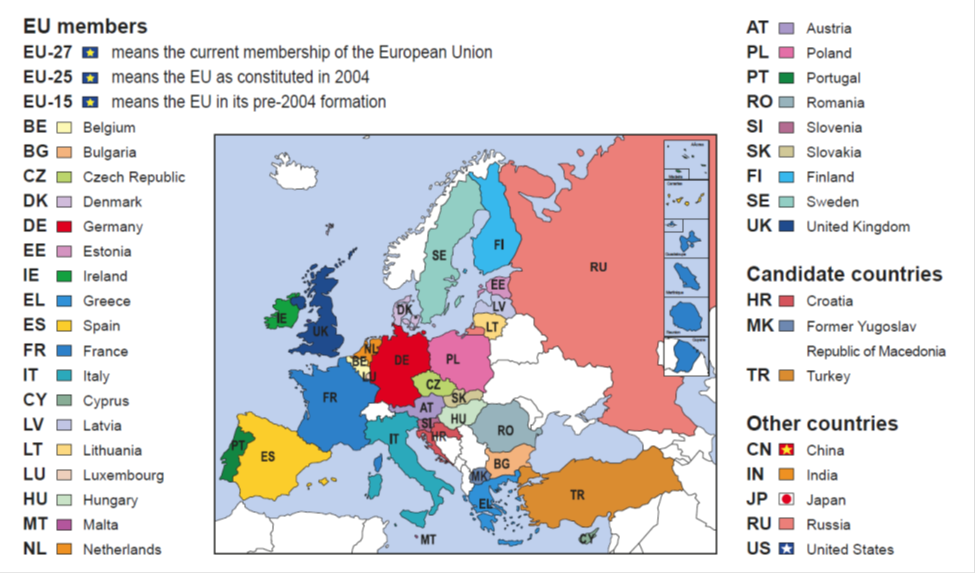Key Dates
- In 1951 the ECSC Treaty was signed in Paris and brought France, Germany, Italy and the Benelux countries together in a Community with the aim of organising free movement of coal and steel and free access to sources of production
- It was on 25 March 1957 when the Treaty of Rome was signed, establishing the European Economic Community (EEC)
- On 1 January 1973, Denmark, Ireland and the United Kingdom joined the EEC, although for the UK, the main price for entry was the Common Agricultural Policy (CAP)
- 1975, Britons vote by a majority of 67% to stay in the EEC
- 1981, Greece having emerged from a dictatorship joins
- 1985, Greenland declares its independence from Denmark and become the only country to leave the EU
- 1986, Spain and Portugal like Greece, newly democratic accede
- 9 November 1989, the changing face of Europe – the fall of the Berlin Wall
- 1990, East Germany is reunified with the West and therefore becomes part of a member state
- In 1993, a Europe without frontiers – Maastricht’ Treaty on European Union is signed and the birth of the 4 freedoms: Movement of goods, Services, People and Money
- 1995, Austria, Finland and Sweden former Cold War neutral states join, while Norway through a referendum decides against
- In 2004, the political divisions between east and west Europe are finally declared healed when no fewer than 10 new countries join the EU
- 2007, Bulgaria and Romania join
- 2013, Croatia joins
Key Facts and Figures
Any European country can apply to join the member states. The map below shows the situation in 2007, when three countries had applied to be part of the EU. One of those countries, Croatia accessed in 2013.

EU Enlargement
The EU now comprises 28 member states. By 2014, five more countries had applied to join;-
- Iceland
- Macedonia
- Montenegro
- Serbia
- Turkey (Currently has visa arrangement with EU)
The enlargement of the European Union is theoretically open to any European country which meets the Copenhagen criteria, which are;-
- Democratic
- Operates a free market
- Is willing and able to implement all previous European Union law
However the mass immigration from Syria that peaked in 2015 has destabilised the EU, so while the member states debate the best way to deal with the issue and any talk of enlargement has likely been put on hold, at least for the time being.
